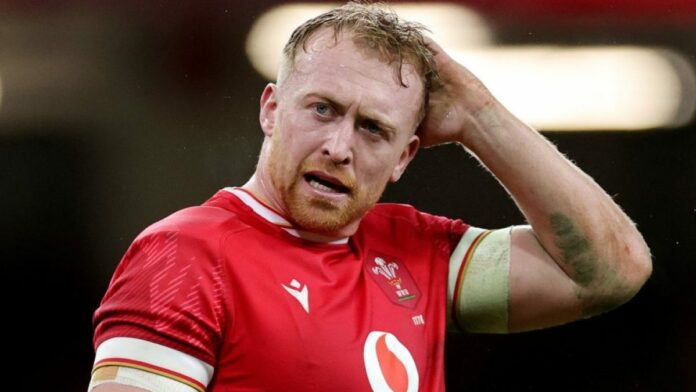
[ad_1]
Wales play double world champions South Africa on Saturday, with the Dragons staring at the prospect of a winless calendar year for the first time since 1937.
Last weekend they suffered a 20-52 defeat to Australia, their 17th under Warren Gatland from 23 Tests, leading to speculation that this could be the end of the once revered head coach’s second tenure.
But is Gatland to blame? Welsh rugby is in crisis, facing a cluster of problems across the board.
Pivac’s policies
To point the finger solely at Gatland would be to ignore Wales’ long-term struggles under Wayne Pivac. The Pivac era started in 2019 and though his 2021 Six Nations victory showed spatterings of optimism, his reign ended in 2022 following nine defeats from 12 Tests that year.
Read Next
In his first year, Pivac oversaw Wales’ decline from the top of the rugby world rankings to ninth, their lowest result since 2012.
The Kiwi head coach threw out caps like confetti naming 30 debutants to remedy it, underutilising and under-developing players. Dewi Lake and Louis Rees-Zammit were exceptions, shining from the outset, while others were played and then forgotten. Rees-Zammit ultimately left the game to try his hand at NFL.
And yet it all seemed to have a purpose, building towards one big aim, the World Cup in France. That was until Pivac was replaced in 2022 by the returning Gatland, who was hailed for his success in the 2023 tournament until the exit in the quarter-final against Argentina.
Did Gatland take the credit for Pivac’s succession plan? Did Gatland leave Pivac with the start of a declining squad back in 2019?
Frankly, it’s not clear-cut. Gatland blamed Pivac for the team’s state, and it was an issue years in the making, stemming from an overreliance on their golden generation.
The ‘golden generation’
England and Wales are both at a similar crossroads as their previous mainstays have now gone, leaving an experience gap that has left them vulnerable.
But for Wales, calling it an experience gap would be an understatement. This weekend’s squad has a total of 334 caps, which compared to South Africa’s 970 seems almost amateur.
Read Next
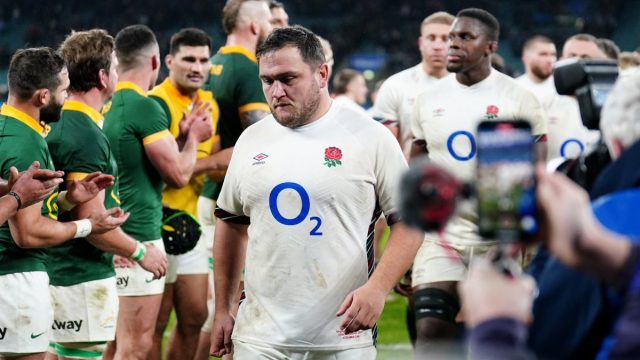
Alun Wyn Jones, Rhys Webb, Leigh Halfpenny, Dan Biggar and Justin Tipuric were amongst Welsh rugby’s golden generation, which came to a grinding halt in 2023 with an onslaught of retirement announcements.
Ken Owens and Jonathan Davies stuck around a little longer until this year, when both retired and essentially nailed the coffin shut on this generation’s future.
The players of that era rose through a thriving club system in Wales, one which is now in financial crisis. So throughout the Autumn Nations Series, Gatland has not been spoilt for choice, revealing the holes in an underdeveloped squad stemming from issues at club level.
Underperforming clubs
The four Welsh sides, Dragons, Scarlets, Ospreys and Cardiff, all underperformed in last season’s United Rugby Championship.
Ospreys were markedly the superior side after they became the first Welsh side in six years to reach the United Championship quarter-final, while the three remaining teams fell in the bottom five.
So far this season there has been a change in favour as Scarlets sit sixth in the Championship but remain 13 points off the table leaders Leinster. Given the lack of resources and funding Welsh sides face, it remains to be seen whether they will hold that place.
Read Next
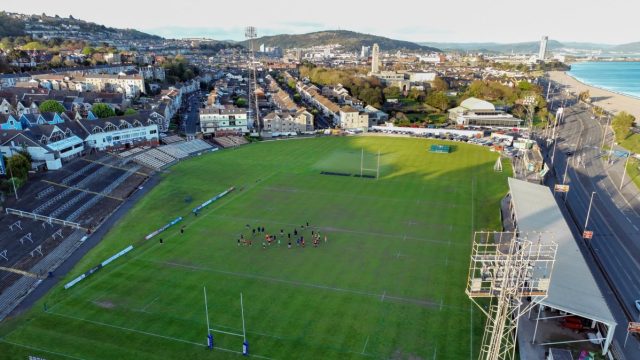
A £2m funding cut last season led Halfpenny and Wyn Jones to leave Scarlets and Ospreys respectively. It was made worse by all four teams receiving a further player budget reduction to £4.5m, creating a further talent drain.
That placed teams under unnecessary pressure, as shown by players threatening to go on strike in 2023, with many looking for opportunities outside of Wales.
A pathway blocked
There are 81 Welsh-qualified players who have moved elsewhere in the hunt for better resources.
Looking at the teamsheet for Wales this weekend, you could argue a talent drain is not the problem as 11 of the 15 starting line-up play for one of the four regions.
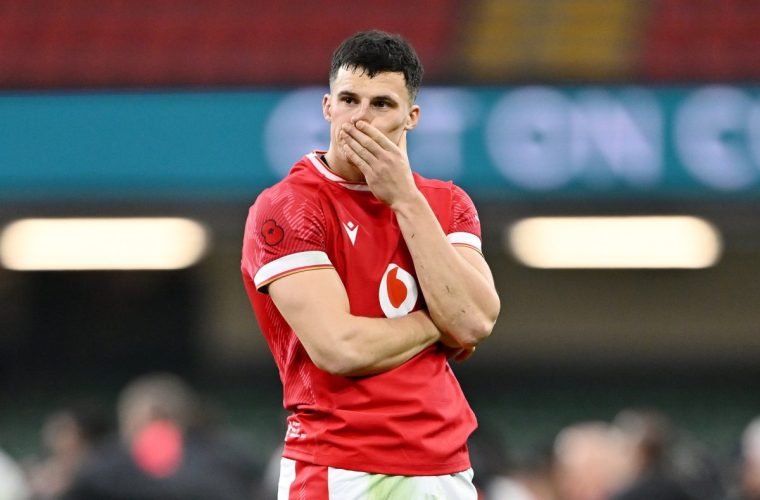 Ellis Bevan after the defeat to Fiji (Photo: Getty)
Ellis Bevan after the defeat to Fiji (Photo: Getty)
However, this only highlights the total inexperience within the line-up, as the 25-cap rule prohibits players with fewer caps from leaving for rival leagues if they want to continue representing Wales.
As a result, the four teams have had to bandage the holes in their squads by bringing in several players from overseas. Gatland has shared his concerns over this as he believes there is a risk that the 23 overseas players at Welsh clubs will block the pathway for young Welsh talent.
WRU in crisis
It could even be argued Gatland has become a scapegoat for the Welsh Rugby Union (WRU)’s troubles amid financial problems, falling attendances and a sexism scandal. Last year, a scathing report found that misogyny, racism and homophobia were not properly challenged in the organisation.
Read Next
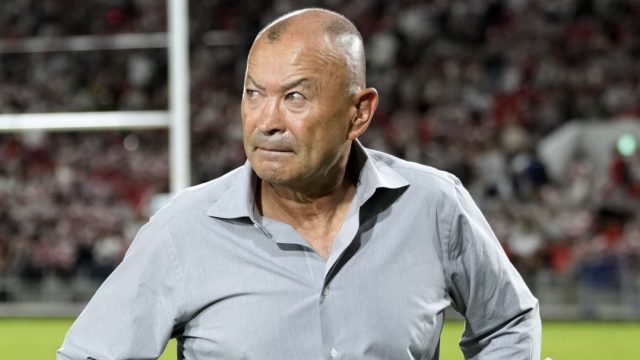
The WRU also reported a pre-tax loss of £14m in the 2022-23 financial year, coupled with an estimated £29m gap in funding over the next five years.
Ticket sales are not fixing the problem as attendances are continuing to drop. The 56,188 attendance to watch the defeat to Australia at the Principality left a significant number of vacant seats for a stadium with a capacity of 74,500.
The fanbase appears disenfranchised, with a further scandal breaking days before their autumn matches began. The WRU reportedly threatened to withdraw the women’s team from next year’s World Cup if they did not sign new contracts which contained details such as not paying travelling reverses on match days.
The glory days are far behind Wales and there is no clear solution for their return. Gatland is to blame for aspects of what is statistically the worst Welsh team in history. But to view him as the sole cause would negate the crisis that has been boiling under the surface for years.
[ad_2]
Copyright for syndicated content belongs to the linked Source link

